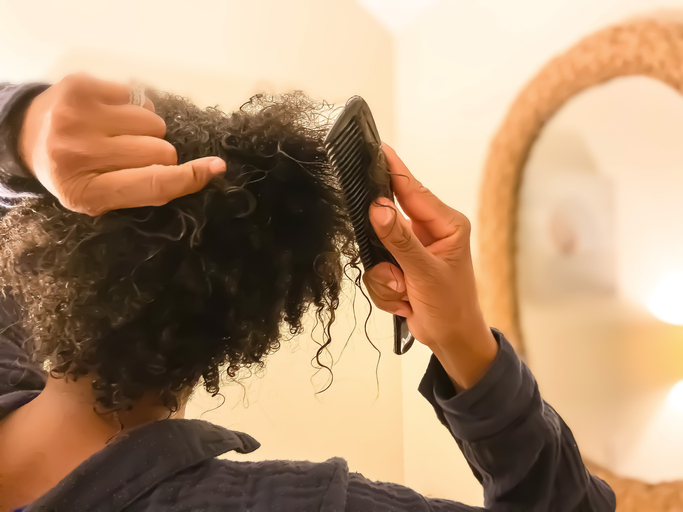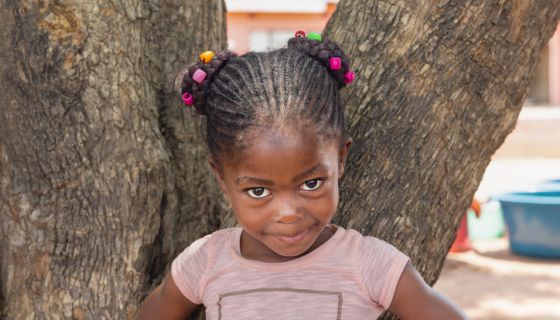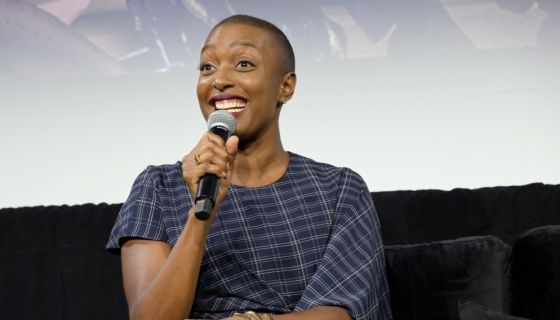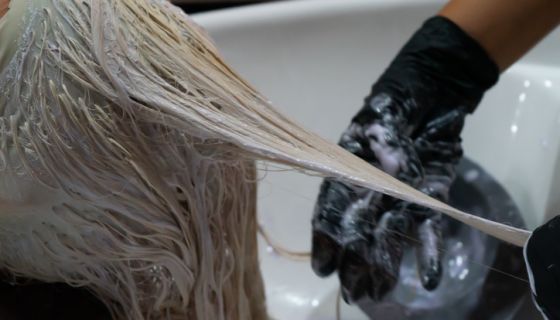
Source: Catherine McQueen / Getty
Gen-Z social media star Quen Blackwell served up a Naomi Campbell-like face card only days after being “hair depressed.”
In a video shared Oct. 13, the 22-year-old TikToker lamented to her over 8.2 million followers about how life feels less than whenever she doesn’t have her hair done. The online personality — known for her quirky and over-the-top flair — said the moments between hairstyles are when she doesn’t want to see anyone, hang out with friends, or even look in the mirror. She stated that not having her hair done breaks her spirit.
“I just want a buss down. It’s so expensive though,” she stressed. “Can someone please give me a buss down?! I CAN’T LIVE LIKE THIS!” I don’t have a raggedy spirit, why do I have to have a raggedy exterior! I deserve better!”
In the comments of a video Quen shared Oct. 18, TikTok users couldn’t help but highlight how stunningly she favored supermodel Naomi Campbell.
Quen had gotten her hair done, and her latest new hairstyle was a bone straight wig with wispy bangs.
“Is it just me or does she look like Naomi Campbell?”
“NAOMI CAMPBELL.”
“Naoooomiii that you?”
“Giving Naomi.”
The young TikToker smized for the camera before she showed her slightly risqué, black dress in the mirror and sported a glowing smile.
While Quen didn’t use the term “hair depressed,” the concept has been floating around on TikTok.
The search results on the platform show many young Black women’s similar experiences to what Quen felt before she got her sleek new hairstyle. Based on the videos circulating, hair depression can be defined as not feeling one’s best or like oneself when your hair isn’t done.
Hosts Zaria Linton and Malaika “MJ” Lea of the Good Women, Bad People podcast talked about being hair depressed [16:05 minute mark] in an episode posted on YouTube Sept. 14.
Although speaking humorously, the two mentioned feeling suicidal at moments when their hair wasn’t done.
When an off-camera voice said, “Hair depression is real,” MJ and Zaria spoke about how Black women especially are impacted by the serious issue.
“I hate hair depression — and it’s deeper than we think,” MJ said.
“It is a Black woman thing… and I’ll tell you why. As Black women, having unruly and — for a long time — natural hair, was considered unkept, dirty and unprofessional. So for so many years, we were sitting here thinking, ‘Damn, I need a perm. I need to straighten, everything’s got to be neat, put together and precise.’ I can’t walk outside in a messy bun and just look okay. I can’t walk outside with my edges undone and be like, okay. That’s not a luxury I have as a Black woman.”
MJ noted that feeling comfortable without your hair done is something Black women have been fighting for. Still, she emphasized that the heavy and hard-hitting impacts of society’s views on Black hair still affect her internal viewpoint when she’s without a hairstyle.
Zaria pointed out that hair discrimination doesn’t only come from white people, but often other Black people too.
The off-camera voice even shared that they’d received multiple suspensions in their youth from a Black principal because they had curls, and “pressed” hair was a part of their school’s uniform.
The wave of online conversations about hair depression could be linked to its potential cause — hair discrimination.
The 2023 CROWN Workplace Research Study — co-commissioned by Dove and LinkedIn — confirmed that Black women face hair discrimination and microaggressions based on their hair.
- Black women’s hair is 2.5x more likely to be perceived as unprofessional.
- Black women with coily/textured hair are 2x as likely to experience microaggressions in the workplace than Black women with straighter hair.
- Black women are 54% more likely (or over 1.5x more likely) to feel like they have to wear their hair straight to a job interview to be successful.
- Approximately 2/3 of Black women (66%) change their hair for a job interview. Among them, 41% changed their hair from curly to straight.
Dove’s 2021 CROWN Research Study for Girls additionally found that 53% of Black mothers said their daughters experienced racial discrimination based on hairstyles as early as five years old.
The CROWN Act is a law that makes it illegal to discriminate against hair, hair texture or protective hairstyles, including braids, locs, twists or bantu knots. It has been passed in 23 states so far, and the acronym CROWN stands for “Creating a Respectful and Open World for Natural Hair.”
RELATED CONTENT: “Black Women Are Celebrating Their Hair’s Versatility And Unique Textures With This Hashtag”












